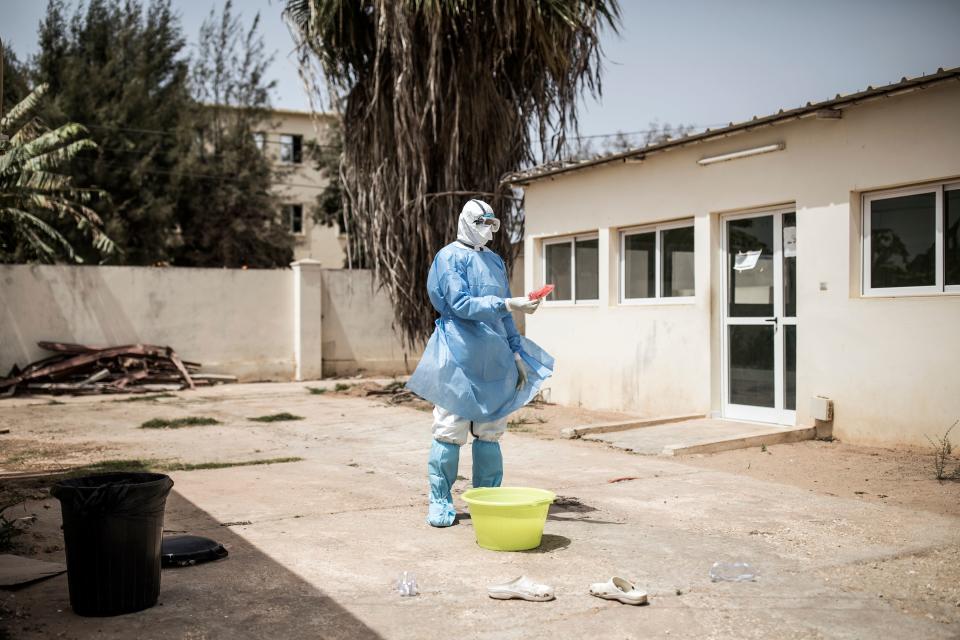Fears of new coronavirus epicentre where one billion could be infected
There’s fears one continent could become a new coronavirus epicentre, which could potentially kill 300,000 after a sharp increase in confirmed cases.
Africa has seen a 43 per cent jump in reported COVID-19 cases in the last week following a warning from the World Health Organisation that the continent of 1.3 billion people could become the next epicentre of the pandemic.
Africa has a "very, very limited" and "very, very strained" testing capacity, John Nkengasong, director of the Africa Centres for Disease Control and Prevention, said in his weekly briefing on Thursday.
It means that the surge in infections on the continent is likely to be even higher in reality, he said.

The WHO's recent report painted a grim picture for Africa. It warned the virus could kill more than 300,000 people and push 30 million into desperate poverty.
Africa still has time to avert such a disaster but testing people and tracing virus cases is critical, said Mr Nkengasong.
"It all depends on what we are discussing here," Mr Nkengasong said, "which is, 'Are you testing? Are you finding the cases? Are you isolating and tracking the contacts?' It is not a prediction that means it must happen."
By Mr Nkengasong's own criteria, Africa is struggling on the testing front.
In the two months since the continent began mobilising to fight the outbreak, less than 500,000 tests have been conducted on a population of more than one billion.
That is just 325 people tested per one million people, Mr Nkengasong said. That is far lower than Italy, one of the world's worst-hit countries, he said by way of comparison.
African governments reported nearly 26,000 cases as of Thursday, according to the Africa Centres for Disease Control and Prevention, up from just over 16,000 a week ago.
Although those figures are still relatively small in the global picture, the sharp increase is a cause for concern, said Mr Nkengasong. The previous week saw an increase of 29 per cent.
"If you don't test, you don't find. And if you don't test, you are blinded. If you don't test, you are not ahead of the curve," Mr Nkengasong said.
The Africa Centres for Disease Control has a target of conducting one million more tests in Africa over the next four weeks and 10 million tests in the next four months.

The overall effort is badly hampered, Mr Nkengasong said, by a major obstacle - the existing fragility of the health services in many African countries.
"I'd like to make sure I make this very clear," he said. "It is an uphill battle to build health systems while you need them. That is what we are actually doing now.
“We are playing catch-up and that is a very, very tough thing to do.”
Graph reveals how well Australian cities are actually adhering to lockdown measures
The one nation taking a radical approach to managing the coronavirus threat
Do you have a story tip? Email: newsroomau@yahoonews.com.
You can also follow us on Facebook, Instagram and Twitter and download the Yahoo News app from the App Store or Google Play.




